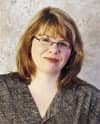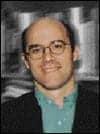
While medical problems, such as infections, strokes, head injuries, and some medicines are responsible for some of hearing loss, but a recent report by the American Speech-Language-Hearing Association (ASHA) indicated the primary culprit is constant exposure to extreme noise pollution. Hearing is the only one of the five senses that cannot be turned off. It is also the most delicate. Repeated exposure to such common sources as construction, traffic, rock concerts, power tools, or airplanes can take a toll, as permanent hearing loss can occur from prolonged or repeated exposure to sounds at 85 decibels or above. Because it can come on gradually, many persons with hearing loss never see it coming.
“We have become a noisy society and that noise is slowly robbing us of our hearing,” says Glenda Ochsner, PhD, CCC-SLP, ASHA president. “On average, our parents and grandparents developed noise-related hearing loss between the ages of 40 and 50. Today, because of increased noise levels, many young people experience diminished hearing as early as their teens and 20s.”
Practitioners and specialists in the hearing health care industry need to discover new and innovative ways to publicize the dangers of noise pollution, and—at the same time—create awareness of their services among a wider constituency. Clearly, the specialty has the opportunity to help more individuals, of all ages, enjoy the pleasures of clear high fidelity for many years to come.

Rogena Schuyler Silverman
[email protected]





